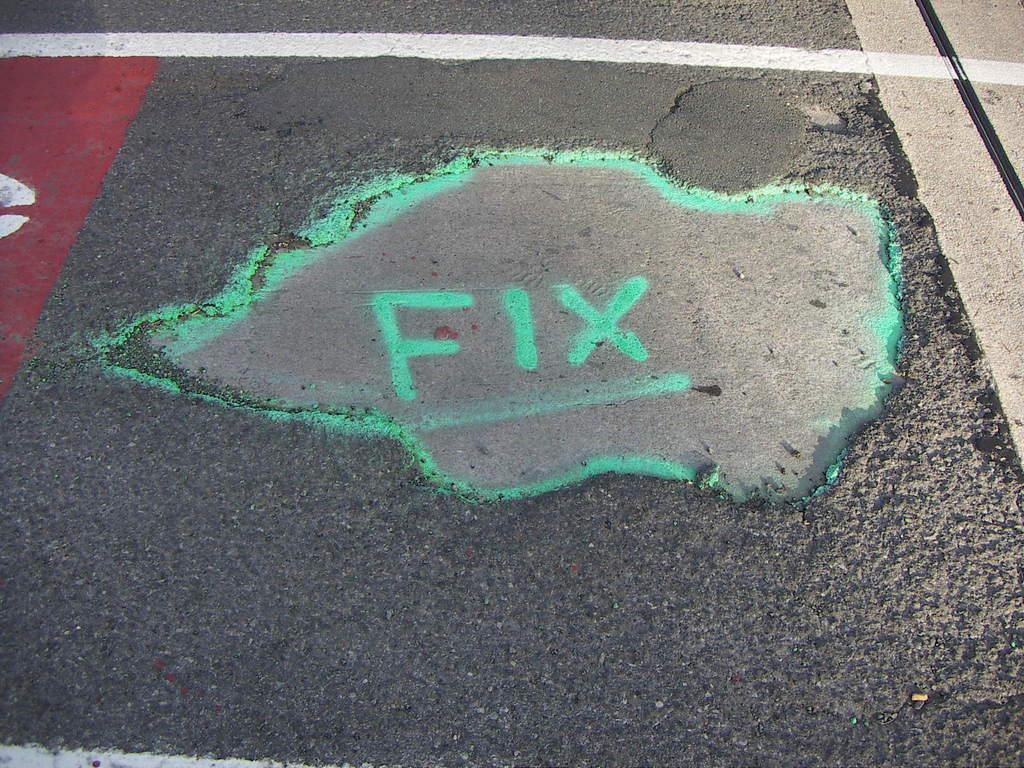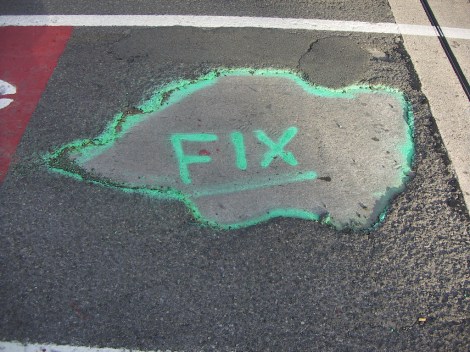Too many people are driving too many dang efficient cars in the Pacific Northwest lately, and Washington and Oregon have had enough. Between those efficient cars and a population that’s just generally driving less, gas tax intake has fallen nationwide, meaning less money for road maintenance and repairs that all cars (and bikes!) need. Now some states are looking at new ways to make up the difference.
Starting next month, Washington will begin taxing electric vehicle owners $100 per year, though with about 1,600 electric cars in the state, that’s not likely to fill those empty coffers. In Oregon, lawmakers are considering a proposal to tax through a flat fee like Washington or by taxing drivers of fuel-efficient cars based on the number of miles they drive. (A new report to the Washington state legislature says a mileage tax there would be “feasible.”)
Some say that taxing based on vehicle miles traveled, or VMT, will be the gas tax of the future not just for West Coast hippies, but for everyone. From CNBC:
Either way, what’s happening in the Pacific Northwest is raising a number of questions. The primary one being: Is it only a matter of time until anybody owning a car or truck is paying a special tax based on how much they drive their car?
Supporters of VMT or per mile taxes point out that electric car and even hybrid car owners are paying nothing or very little to help maintain state roads.
Take a look at the Washington electric vehicle tax and compare it to the state’s current gas tax of 37 cents per gallon. If somebody drives an internal combustion car that gets 30 MPG and they average 12,500 miles driven each year, they’ll pay about $154 a year in state gas tax. By comparison, electric car owners will be paying less at just $100 per year.
On the flip side, critics of VMT or per mile taxes say it’s hypocritical of state governments to promote electrical vehicle ownership and then turn around and tax those who are the “early adopters”.
It might be nice if states provided other incentives for more efficient vehicles, but that’s not really the spirit of the gas tax. If its goal were penalizing and shaming us over fossil fuels, I could understand this annoyance, but it’s not! It’s how we fund our roads. Not that we couldn’t use some shaming, but we could really use some investment in crumbling infrastructure. This is how taxes work! (USA! USA!) We all use the roads, so let’s please all pitch in to fill the potholes. You can still do that while feeling righteously smug, Volt drivers.



